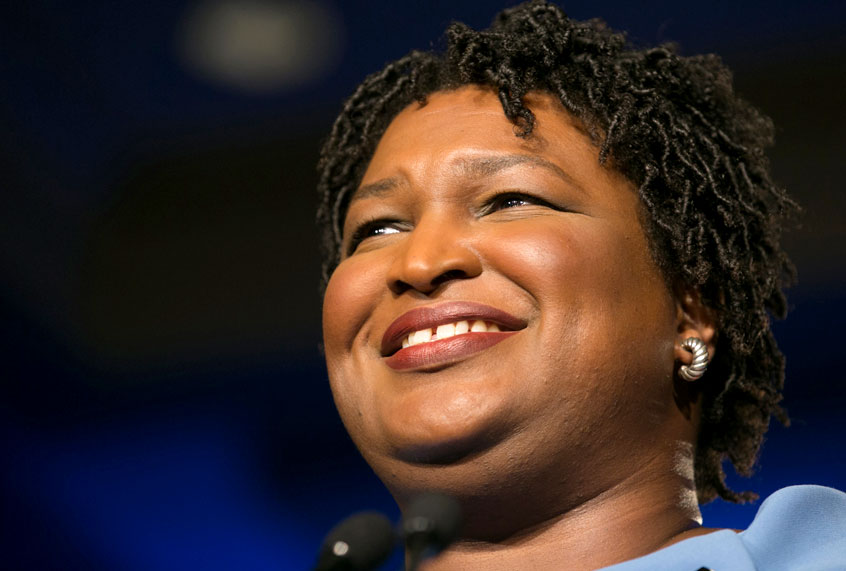After President Donald Trump delivers the annual State of the Union address next week, a rising Democratic star will have the chance to deliver the progressive response.
Stacey Abrams, the Democratic candidate who narrowly lost a 2018 bid to become governor of Georgia, announced Tuesday that she had accepted the invitation to give the nationally-televised rebuttal.
“At a moment when our nation needs to hear from leaders who can unite for a common purpose, I am honored to be delivering the Democratic State of the Union response,” Abrams said in a statement. “I plan to deliver a vision for prosperity and equality, where everyone in our nation has a voice and where each of those voices is heard.”
Abrams gained a national following and became a figurehead for the voting rights movement after nearly turning a deeply-red state with a long history of voter disenfranchisement blue for the first time in more than a decade. The Democrat lost to Brian Kemp, then Georgia’s Republican secretary of state overseeing the race, who Abrams has since referred to as an “architect of voter suppression.”
“Make no mistake, the former secretary of state was deliberate and intentional in his actions,” Abrams said as she acknowledged that she did not have the votes to declare victory. “I know that eight years of systemic disenfranchisement, disinvestment and incompetence had its desired affect on the electoral process in Georgia.”
Like Kemp, Abrams gained more than 1.9 million votes across the state of Georgia, ultimately losing by a raiser-thin margin of about 55,000 votes in an election where nearly four million ballots were counted. Officially, it was the tightest race to lead the southern state since 1966, according to the New York Times. Had Abrams won, she would have become the first black woman governor in the U.S.
House Speaker Nancy Pelosi said on Tuesday that Democrats are thrilled to have Abrams in the driver’s seat. Indeed, the presence of a woman of color will provide a clear juxtaposition to a commander-in-chief who said “there’s blame on both sides” following the white nationalist rally in Charlottesville, Virginia.
“Her electrifying message of courage, perseverance and hope reinvigorated our nation and our politics, and continues to inspire millions of Americans in every part of the country,” the California Democrat said in a statement. “Stacey Abrams embodies the American Dream, and her powerful message of progress for all is deeply needed during this time for our country.”
Senate Democratic Leader Chuck Schumer added that Abrams would offer a “welcome” and “stark” contrast to Trump’s “politics of division and lack of leadership as American families are still feeling the impacts of his self-imposed shutdown.”
“Stacey Abrams is a present and future leader in this country,” the New York Democrat added. “She is a dynamic, moral leader; she delivered results on the issues that matter most to Americans; and she tirelessly pursues fairness and justice for everyone in her state.”
Critics previously declared that Pelosi and Schumer had “botched” their recent rebuttal to Trump’s border wall speech. Standing soberly together behind one podium, the pair were instantly turned into memes by the Internet. Abrams’ star, which was not faded by the longest-running partial government shutdown in U.S. history, will instead offer a fresh and diverse perspective to American voters.
The Georgia Democrat’s gubernatorial candidacy attracted a celebrity following, which included the likes of Oprah Winfrey and Will Ferrell in its ranks as door-to-door canvassers for the campaign. Abrams ultimately did not concede the race, because of the accusations of voter suppression.

